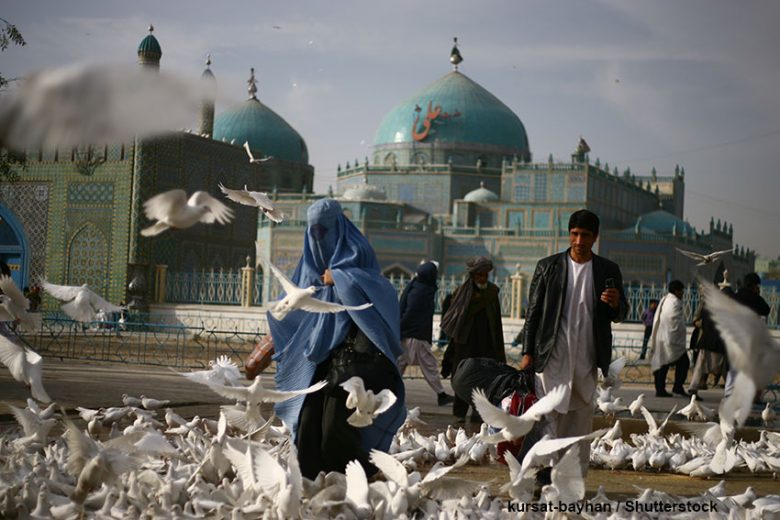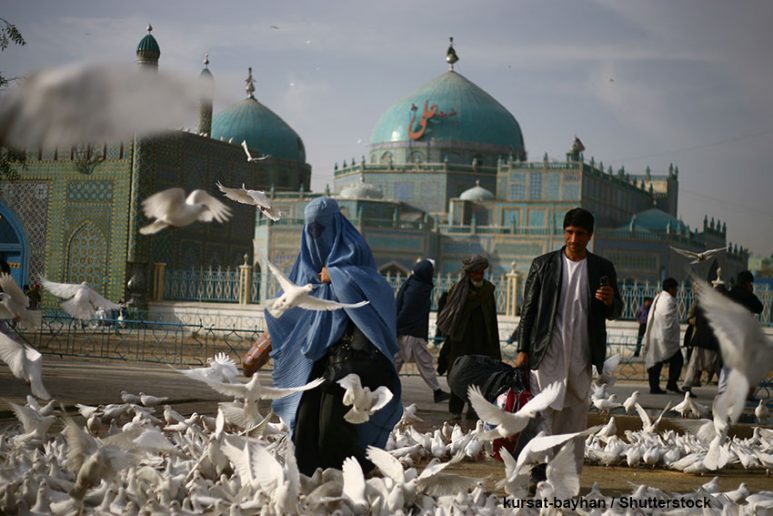By Marianna Karakoulaki
In April this year, Human Rights Watch published a report about journalists and women in the media in Afghanistan in which it interviewed 46 media workers in the country between November 2020 and March 2021. The report focused on the increased targeting of journalists in the Afghan media as well as the tactics and threats the Taliban use against journalists in areas where the Taliban had significant control at the time as well as in Kabul.
At the time the report was published, Taliban officials denied claims of intimidation towards journalists. Reality on the ground, however, was different. The Afghan Journalists Safety Committee, a non-profit organisation that was formed in 2009 and “works towards the advancement of journalist safety and rights so that they can report in a safe and fearless environment”, has been producing bi-yearly reports on the safety of Afghan journalists since 2013. Although the reports include results up until 2019 which means incidents since the USA’s former president Trump started negotiations with the Taliban are not included, the picture they paint is grim. Since 2013, 67 journalists were killed, 116 injured, 156 beaten, 209 threatened, 10 kidnapped. The Taliban killed 27 journalists, injured 33 and kidnapped 7. Besides the Taliban, the Afghan Journalists Safety Committee found that the Afghan Government, unknown groups, ISIS, local warlords, media officials, protestors and others are among the perpetrators of violence against journalists. An interesting aspect of the data is the shift in the perpetrators of violence against journalists. Even though in the beginning the government seemed to have been involved in more incidents, the Taliban and unknown groups appear more often after 2016.

There are rising concerns on women’s rights in the country following the Taliban’s ascend to power considering the way women were treated in the past. For women journalists the situation is even more complicated. Although the Taliban claim that their rule will be different from before and seem to allow women journalists to work for now, the way the country’s media operate is already shifting so that it presents a more likeable representation of the new rulers. At the same time, some women journalists have been allowed to work and one interviewed a Taliban representative live on TV – something that would have been unthinkable in the past.
Others, however, have been prevented from going to work.
Shabnam Khan Darwan a journalist with six years of experience as a journalist claims she was prevented from working by her male colleagues, even after presenting her media card, due to the change of the system.
“I was part of Afghanistan’s RTA or national television, my latest place of work. I didn’t give up after the change of system and went to my office, but unfortunately, I was not allowed despite showing my office card,” she said in a video shared by the AFP News Agency.
The International Association for Women Journalists recently published a call for stronger measures to protect women journalists in Afghanistan.
“The declining security situation poses a serious threat to the achievements of the last two decades regarding freedom of expression and threatens to push back decades of hard-won progress for women and girls who are now terrified of a return to a repressive past under the Taliban,” reads the call.
Following pressure from British media, Dominic Raab announced that the UK will allow 200 journalists who have worked with British media to resettle in the UK and offered visa waivers.
For Lesley Abdela, this is not enough. Abdela has worked on women’s issues in 50 countries including Afghanistan in 2004 and 2005. She has been campaigning and working as a consultant, activist, and journalist to increase women’s rights and the number of women in parliaments and public life worldwide. She is Senior Partner at Shevolution and a Fellow of the Chartered Institute of Journalists, Member of Women in Journalism.
A couple of weeks ago, she organised a letter for British PM, Boris Johnson to ask for women journalists to be given asylum.
“They [the British government] should include women journalists being allowed, they should grant women journalists the right to apply for refugee asylum in Britain. Not just women journalists who have worked with British media; that’s the important point,” she tells Media Diversity Institute.
“The British government are saying those who have worked with British media, I am saying that any woman journalist there because we know a [large] number of examples: there was one on BBC a couple of days ago about two women running a local radio station in Balkh in Afghanistan on women’s rights and they had to flee to Kabul, they were in hiding there […]. I know that so many people deserve resettlement, but these women have really shown incredible courage and should definitely be on the list of people,” she continues.
During the presence of western forces in Afghanistan there were several steps for the inclusion of women in public affairs: be it the politics or the media. However, for women in Afghanistan the situation was always perilous. Although the United Nations Security Council Resolution 1325 on women, peace and security reaffirms the importance of the inclusion of women in the peace processes and urges governments for the inclusion of women in such processes, Lesley Abdela stresses that it was never fully implemented, “UNSCR 1325 contains no carrots and no sticks” especially in countries such as Afghanistan. Women, for example were not present during the negotiations between the US government under the Trump administration with the Taliban.
Amis’* dream is to become a journalist.
“My passion is to become the voice of the voiceless,” she tells Media Diversity Institute.
Amis is a teenager from Afghanistan who currently lives in northern Europe. Although she only lived in the country for a few years as she was born in Iran she does not remember much from the country yet she remembers she could not play outside as easily. She finds the situation in the country heart-breaking and she thinks the women of the country are not safe. For this reason she believes that the need for free media is crucial.
“There is no camera that shows what is going on there, who has rights there or why women cannot be in society. There are media that do not give the right news,” she says.
“All I want for the people [of the world] to not forget the women and the children who live in that hell,” she continues.
Aryan Ashori who also lives in Northern Europe with her family agrees on the importance of women in the media.
“Women need to appear in the media, in the community, in the society. They have to be treated the same as men. The role of the women in the media, help the development of Afghanistan,” she tells Media Diversity Institute.
“Women in the country need to speak out, they need to their their painful stories they need to be heard. Women in media can clearly explain the difficulties of women, they can show the world their own experience. They can feel other women better than men [do]. The important realities of women’s lives can only be told by women. They [have the power] to solve challenges of women as they face them every day,” she continues.
Although the Taliban have made clear so far that Afghanistan under their rule will be different from the past, the situation is still fluid, and it is yet to be seen how the country’s media environment will develop. During the first days of the Taliban taking over Kabul, women journalists were absent from the screen, something which started to change the following days. Yet the future of journalism in the country and women journalists in specific is still perilous.
*Some names have been changed for the protection of those interviewed
Photo Credits: kursat-bayhan / Shutterstock

